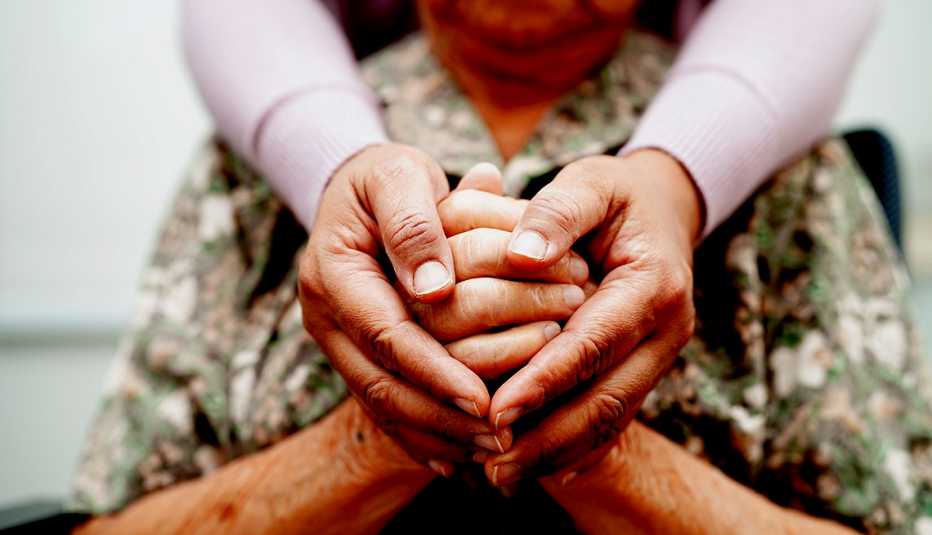The Underlying Issue of Caregiving: Fear

Peter* was my go-to guy when it came to all things gardening in the summer. He is one of my favorite relatives in an extended network of family that vacations at the same lake in upstate New York each summer, and we have a shared language of composting and bulb planting, soil supplements and dahlia tubers that would make most folks keel over with boredom. This summer, I noticed him moving more slowly. Where he’d always hopped spryly around the beach, there was a sudden heaviness to his gait.
Shortly after that, his wife Anne Marie* asked if we could talk. Out tumbled her story, full of worry and anxiety around her husband. A bout with COVID had left him with long haul symptoms that had morphed into incredible joint pain. He’d gone from taking daily walks to moaning out loud every time he rose from a chair. A recent diagnosis had come back as psoriatic arthritis, something I vaguely recalled from nightly news television ads.
“He’s in so much pain,” she said, eyes brimming with tears. “I don’t know what to do. They’re trying to find the right combination of medications, but it could take months. Some days, I’m helping him out of bed in the morning.”
Life changes in an instant
Pulling into my driveway a week later, my phone lit up with a call from Anne Marie. They had returned to the Midwest from the lake, and I had heard his symptoms had worsened. “Can I unload on you for a moment?” she asked. I assumed she wanted to talk to me because of my husband’s recent hamstring injury. He’d grumped around on crutches for six weeks, the blues crushing his normally buoyant spirit in the run-up to our eldest daughter’s wedding. I had confided in my relative once, in a moment of unguarded honestly, how hard it was to live with someone in pain, depressed and angry, incapable of some daily life skills.
“Peter has turned into an 80-year-old man before my eyes,” she said. “And I’m afraid for the future. How did you cope with this part?” They were empty nesters, close to retirement age, and they had already been dreaming about this next period of their lives: travel, time with grandkids and a sense of freedom and independence.
Unexpectedly, their horizons had gone from wide-open skies to a narrow alley. But more than worrying about his physical pain, she was struggling to tamp down her own daily fears about their future. She wanted to be strong and present for her husband, but also to lift herself out of a gulch of sadness that she worried could engulf them both.
“I didn’t imagine myself as his caregiver in our 60s,” she said tearfully. “I knew it would be a role one of us might have to take on in another decade or beyond, but this all feels so frightening. It’s the not knowing that’s the hardest part.”
An important resource for caregivers to keep in mind is the CJE SeniorLife Hub for Care Coordination. It offers a wealth of resources regarding programs and services available to your loved one, staffed by a team of qualified social workers ready to assist you. For more information on the Hub for Care Coordination, CLICK HERE to view the PDF.
To find out how to overcome caregiver fear and regain control, from AARP, CLICK HERE.
